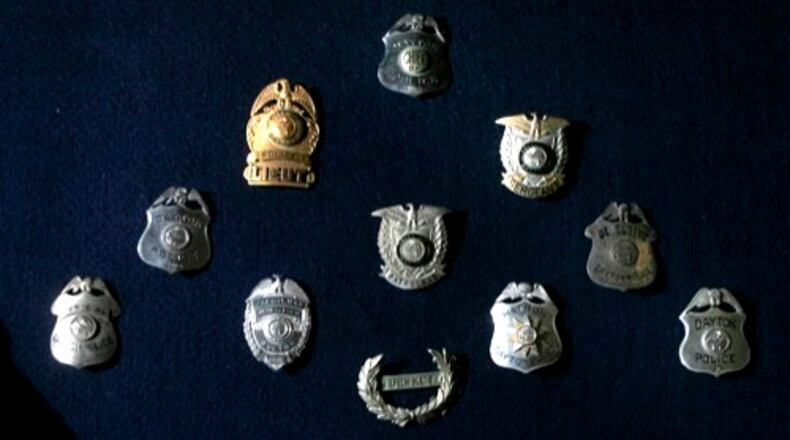School began last month with seven Dayton Public Schools students enrolled in the new criminal justice program based at Ponitz Career Technology Center, though classes have been held remotely due to the coronavirus pandemic, said Dayton Public Schools Superintendent Elizabeth Lolli.
“We felt like we needed to have something to support the city and the city also wanted to increase their abilities to recruit,” she said.
Efforts began three years ago to develop career programs for first responders. A firefighter/EMT program launched last year now has 15 juniors on the track, which is the course capacity, Lolli said.
The firefighting program is at Belmont High School, which is next to the city’s Fire Station 15, while the criminal justice program is taught out of Ponitz, next door to the police department’s West Patrol Operations Division.
“We want students to be able to get to those locations for the hands-on lab work they can do in each of those locations,” Lolli said.
A primary goal is to increase the number minorities within the ranks, Whaley said.
“It’s been long discussed our issue of around recruitment not being in police and fire as diverse as our community,” she said.
Less than 10% of Dayton’s police officers are people of color, even though the city is nearly 40% Black, according to city data and Census estimates.
About 327 of the Dayton Police Department’s 362 uniformed personnel are white, according to city data.
The criminal justice program is taught by Dayton police Officer Leatha Savage, who also focuses on recruitment initiatives for the department.
“I know the importance of getting out to individuals at a younger age,” Savage said. “With everything that’s going on, I think we’re missing that humanity part of policing.”
Savage is currently teaching two juniors and five sophomores in the program, but all are taking the sophomore level courses because the program is new, Lolli said.
The students started with a class on the American criminal justice and will advance to courses on police work in practice, investigations and forensics and security and protective services. In their senior year they will learn about the corrections system and services and homeland security, according to Lolli.
The coursework will not include firearms training, said Lolli, noting that Junior Reserve Officer Training Corps students drill only with wooden model rifles.
“Public schools are not permitted to have any kind of firearms, for any reason, in their school systems,” she said. "We don’t have anybody in the school system who has any firearms at all.
Reflective of a diverse city and school district, the criminal justice students include a mix of females and males, among them Ahiska Turks, Africans, Blacks and whites, Savage said.
Some students like Honesty Owings, a junior, are also earning college credit for the classes.
“I joined the DPS law enforcement program because I wanted to learn more about law enforcement and what the behind-the-scenes of being a cop is like,” she said. “In the future, I would like to be a college graduate and have a good job. I think this program can help me achieve these goals because I can get college credits for this class and I will be certified so I can get a job in law enforcement or security.”
Savage said while the program may put the students on a pathway to law enforcement, they can’t become police officers until they are 21 due to state laws.
That leaves a several-year gap, leaving the city and school district looking at ways to keep the students engaged until they are eligible to serve on the department.
Lolli said some of the incentives being examined include paid internships alongside school resource officers and security work with other community organizations.
“We’ll have to come up with what will actually be most beneficial for the students as they start to go into the work world, because we don’t want to lose them between the time that they’re 18 and graduate and the time that they can actually enter the police academy,” Lolli said.
Nearly a quarter — 24% — of Dayton Public Schools' 4,031 students are currently participating in career and technical education programs, up from 11% in 2018, according to district records.
Savage said Dayton is “competing against the nation” for qualified candidates for jobs that young people rarely hear about.
“This is a profession that is not talked about in families,” Savage said. “We want to get policing and fire as an alternative … it is something attainable right here in the city of Dayton with all the benefits and the satisfaction of doing the job.”
About the Author

